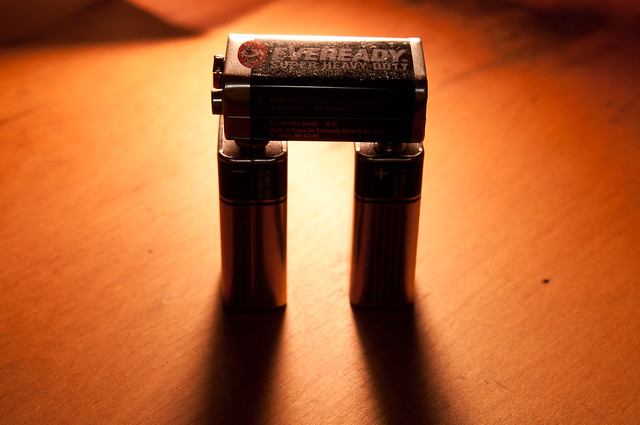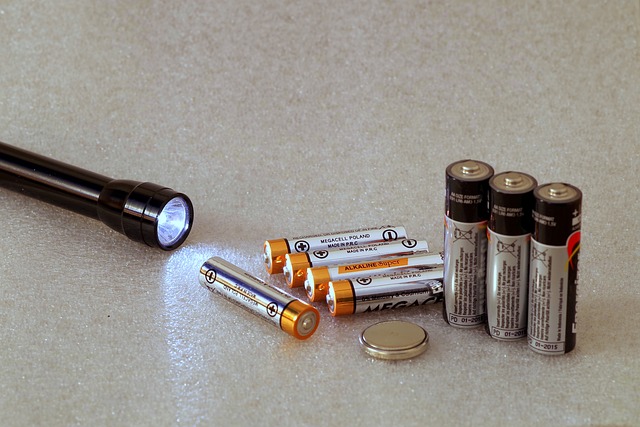Overview of Lithium RV House Batteries
Jun 13, 2019 Pageview:956
Anyone with an RV would wish to have a reliable battery that won’t hold them back in their journey even to the remote campsites. Today, things look a bit better due to the introduction of lithium RV batteries. These lithium batteries have been around for a while now. The best thing is that their quality is improving and their prices have begun to drop. For those who are planning to go off-grid with their RVs, the lithium-ion battery is by far the perfect option. The Li-ion battery is very powerful compared with the traditional lead-acid battery, thus it offers you a great and easy option to upgrade. Let’s learn a little bit more about the lithium RV house batteries.
Quick Specifications of Lithium RV House Batteries
Here are quick specifications of lithium RV house batteries:
· Weight – Lithium RV house batteries weight three times less than a comparably sized lead-acid battery. Lead acid batteries are heavy, and a 300 Ah usable capacity lead acid battery can weigh over 400 pounds. Lithium battery with the same capacity can weigh just about 140 pounds.
· Take smaller space – lithium RV house batteries take up less physical space than lead-acid batteries. They can be installed without the need for any modifications. A lithium battery is perfect if you are trying to fit a battery bank in a small compartment.
· Zero maintenance – lithium batteries are zero maintenance. Once you have installed them, you can almost forget about them. They do not have electrolytes that need to be checked and their terminals will never corrode.
· Usable full capacity - in case of a 100 Ah lithium RV house battery, you can draw 1 amp for 100 hours and or 100 amps for 1 hour and anything in-between. The full capacity of a lithium battery is usable unlike in the lead-acid battery, which can probably have only 60% usable draw.
· Chemistry – Lithium Iron Phosphate (LiFePO4) or Lithium Ion.
· Voltage – 12V to 48V
· Capacity – 100 - 200 Ah.
Specific Function Requirements of Lithium RV House Batteries
There are specific functional requirements of lithium RV house batteries which make them the perfect batteries to have in your RV. Here are the specific functional requirements of lithium RV house batteries:
· Wide Range operating Temperature – lithium RV house batteries have a wide range of operating temperature. The charging temperature can range from 0?C to 45?C while the discharging temperature can be between -20?C and 65?C.
· High Rate Discharging - lithium batteries can keep discharging even under 10C rate. The instant pulse discharge of these batteries is over 20C.
· Even discharge voltage – lithium batteries maintain their voltage throughout nearly the entire discharge curve. Therefore, these batteries ensure greater efficiency and lifespan of your electronics and appliances. Lead acid batteries, on the other hand, consistently and considerably lose voltage.
· No memory effect – lithium batteries do not have to be discharged before charging.
· Higher charge efficiency – lithium batteries have an excellent charge efficiency of 99%. Therefore every amp that the battery receives is stored and usable. A lead acid battery usually has a charge efficiency of 85%, which means that for every amp sent to the battery, only 85 amps are stored and are usable.
· Good charging retention – lithium batteries can be stored for a long period with high residual capacity because they have low self-discharge. However, if you have insufficient solar and you are going to store your battery for a longer period, it would be best to disconnect it.
· Depth of discharge – lithium batteries have a deeper discharge. They can actually be discharged all the way down to 80% state of charger or deeper. However, lead-acid batteries can only be discharged down to 50% state of charge before they suffer some damage.
· Lifespan – the lifespan of lithium batteries is excellent. The batteries can have more than 2,000 cycles, while most lead acid batteries are only rated for 400 cycles or less. The lithium cycle life is less affected by deeply discharging the battery, compared with their counterparts, lead-acid batteries which are greatly affected by higher levels of discharge.
· Good security – lithium RV house batteries are safer than the common lithium ion batteries and lithium polymer battery.
· Environmental friendly – lithium batteries do not have cadmium, lead or mercury. Thee batteries, do not vent and they can be stored just about anywhere. They can actually be stored in the sealed and interior compartments and they won’t vent toxic and acidic vapours while charged and discharged. That makes them environmentally friendly.
With the above excellent specific requirements of lithium batteries, you should note that the upfront of a lithium battery is high. In fact, it costs about three times as much as a lead acid battery per usable amp-hour. The upfront cost could seem incredibly high at first glance and make a lithium battery too expensive and unaffordable to many RV house owners. But you should note that the life cycle of lithium is higher than that of lead-acid batteries by far. Therefore, when you take it into consideration, you will discover that the long-term cost of ownership of lithium battery is actually much less than a lead-acid battery. You won’t have to replace the battery, like what happens which lead acid, thus lithium will save you money in the long run.
Technology Innovation of Lithium RV House Batteries
There has been so much technological innovation in the lithium batteries since they were first introduced to the market. All the lithium battery companies across the globe are always looking for ways to make their batteries better and outstanding in the market. The technological innovation of the lithium RV house batteries can be seen in various ways as discussed below:
1.More power in a small package – in the past, RV houses required huge and heavy lead-acid batteries to power them. The huge the battery, the more the power. If you needed more power, a bigger battery was always necessary. That theory was the norm for almost any battery type. This statement is now not true among the lithium battery companies that have greatly used technology. There are actually lithium batteries with nearly twice the power within a small housing. The lithium batteries for RV houses can now hold full-charge voltage for a long time. Those who own a compact RV, require a small battery that can last for many hours. Today, it is possible to get such kind of a lithium battery that will last for many hours.
2.Weight – riding an RV gives a unique experience. In fact, the RV should glide over any terrain. However, this is not possible if you are driving around with a heavy battery in your RV. Technological innovation has come to offer a solution to this problem. When you compare the weight of a lithium battery and that of lead acid, you will feel a huge difference. Lithium batteries can weigh as much as three times less than the lead-acid batteries. When you have a small and lightweight battery then you will have a better ride in your RV.
3.Safety – safety has always been a concern when it comes to all types of batteries. Batteries contain a mixture of potentially volatile materials, which create the necessary reactions for power output. However, there are certain lithium batteries that are safer than others. For example, LiFeOP4 battery is incredibly safe. LiFeOP4 has been built with stable thermal properties, reinforced housing and is tolerant in full-charge scenarios. Technological innovation has greatly improved the strength of this lithium battery, and therefore you won’t have to be safety-conscious as you ride your RV.
4.Extreme temperatures concerns – there are certain lithium batteries, like the LiFeOP4, for RV housing that are rated down to -40? Fahrenheit. This is quite a durable rating, but not so great. Extreme cold below those values can lead to shorter battery lifespans and reduced life of internal cells. This is a problem that can be solved using technological innovation. Manufacturers are always looking for ways to improve their batteries, so probably this issue will be solved sooner than later.
5.Power for a longer period – lithium batteries for RV houses are now able to provide power for longer periods of time. Lead acid batteries usually succumb to sulfation, which forces the user to charge the battery back up for power. With certain lithium batteries, it is possible to have power for a long period before a charge is needed. Most people would be impressed by this feature in any battery that they purchase.
Conclusion
There are many reasons to love the lithium batteries for RV houses. Many enthusiasts have always turned to these batteries because of their great features and functionality such as lightweight, size and more power for long hours. These batteries are actually the perfect choice for people with small RVs. The maintenance cost of the lithium battery is nearly equal to zero. The upfront cost may seem very high, but in the long run, you will realize you made the best decision.
- Prev Article: Lithium Ion Battery First Charge
- Next Article: Lithium-Ion Battery Weight In Grams
Leave Message
Hottest Categories
-
Hottest Industry News
-
Latest Industry News













